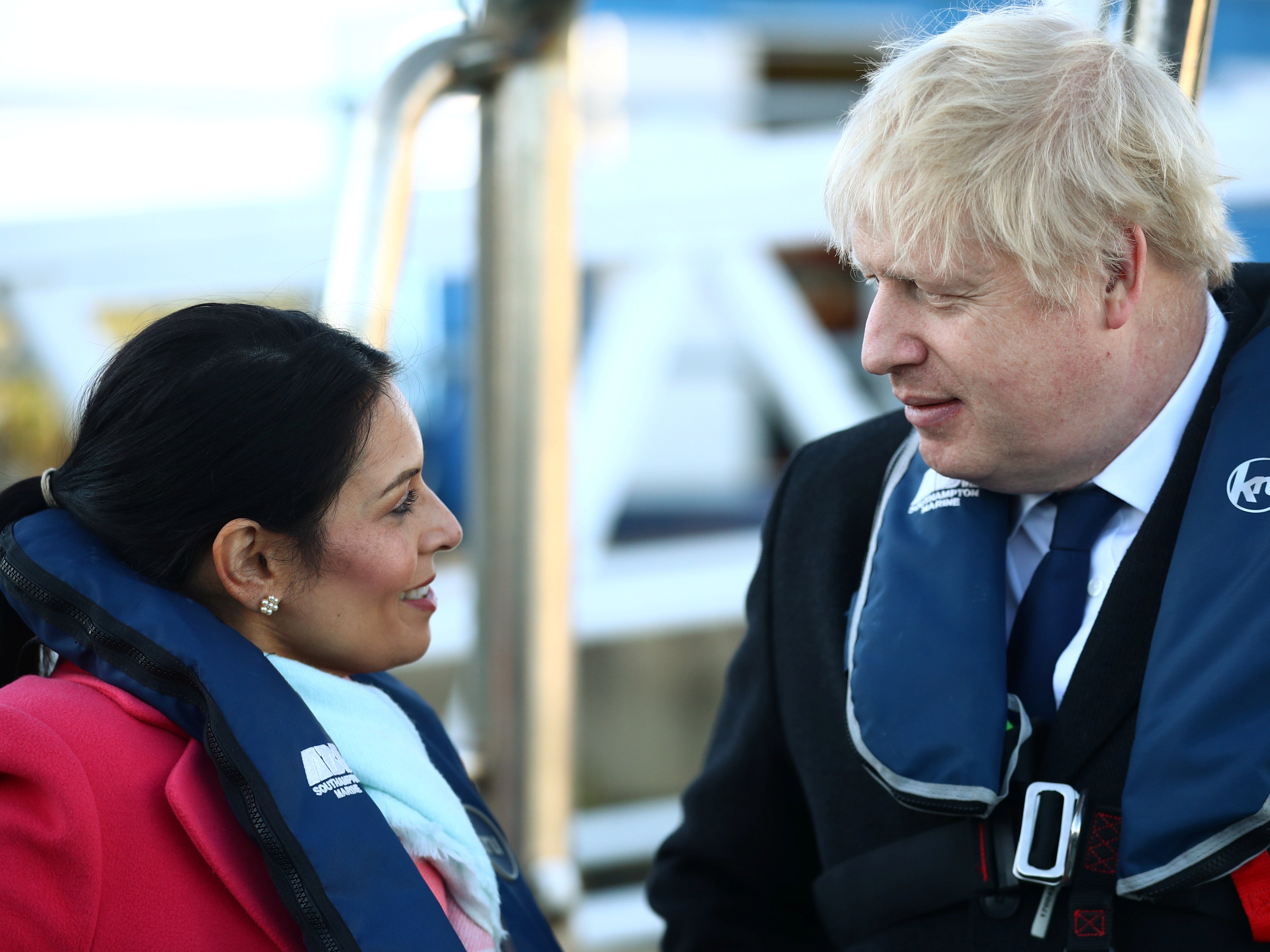Despite numerous controversies, Boris Johnson is unlikely to demote Priti Patel
Calls for Patel’s resignation never seem to die down for very long, and she’s often in the headlines for the wrong reasons. But, Kate Devlin explains, she’s unlikely to be ousted any time soon


Priti Patel today described the handling of the Daniel Morgan case as one of the most “devastating” episodes in the history of the Metropolitan Police force. The findings of an official report into the scandal were the culmination of a years-long inquiry first begun under one of Ms Patel’s predecessors, Theresa May. Its publication should have marked a triumphant moment for the home secretary.
Instead, she found herself on the receiving end of criticism from the chair of the independent panel into the Morgan case, Baroness Nuala O’Loan.
She hit out at what she said was an unjustified delay to the publication of her findings, after Ms Patel demanded her department read it first, citing national security issues. Within hours, opposition politicians accused the home secretary of political interference in what was an incredibly serious matter.
The episode comes at the end of a tumultuous 18 months for Ms Patel, since she was appointed home secretary by Boris Johnson back in December 2019. The job itself marked a remarkable comeback for an MP who had been sacked from Ms May’s cabinet as part of an extraordinary row over secret meetings with international politicians.
Since returning to the cabinet, Ms Patel has been found guilty of breaching the ministerial code and allowed to keep her job, amid accusations that she bullied Home Office staff. Last week she faced calls to resign for allegedly misleading MPs over claims the Home Office followed public health advice when establishing an asylum camp at Napier Barracks in Kent. And now the criticism over her handling of the Morgan report.
Despite the decision to protect her over the ministerial code, there has been speculation Ms Patel will be moved at the next reshuffle, but the benefit of controversial cabinet members to prime ministers can often be overlooked.
His former chief adviser, Dominic Cummings alleged earlier this month that Mr Johnson liked chaos because people then looked to him for leadership.
Ms Patel may be “public enemy no 1” to some, but she also appeals to many within the Conservative Party rank and file and to the type of pro-Brexit voter who delivered Mr Johnson to Downing Street.
The PM is keenly aware that he won the last election on a ticket to “get Brexit done” as well as its associated slogans, such as “taking back control” of the UK’s borders.
Since then he has mainly had to devote himself to tackling the coronavirus crisis and announcing difficult measures such as lockdown.
Ms Patel is also one of the few high-profile members of the current cabinet and as such can also help deflect negative attention away from the prime minister.
The cabinet minister who faced the most flak in Theresa May’s government was often the flailing transport secretary Chris Grayling. But he was too grey a character to soak up much of the opprobrium, leaving Ms May exposed. Ms Patel, it is fair to say, does not suffer from the same problem.
Join our commenting forum
Join thought-provoking conversations, follow other Independent readers and see their replies
Comments
Bookmark popover
Removed from bookmarks